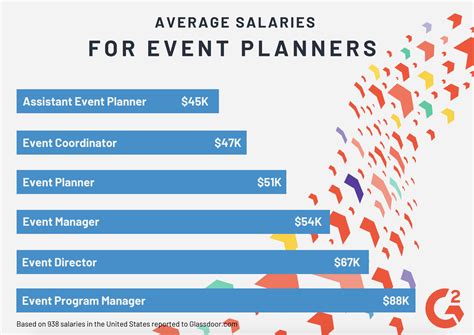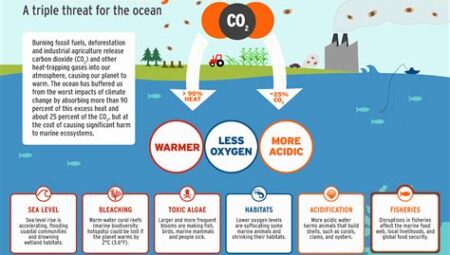Are you passionate about planning events and looking for a career that allows you to showcase your organizational skills? As an event coordinator, you have the opportunity to turn your love for creating memorable experiences into a lucrative profession. In this blog post, we will delve into the world of event coordination and unveil the earning potential that comes with this dynamic role.
From understanding the responsibilities of an event coordinator to exploring the various factors that impact their salaries, we will provide an in-depth insight into what it takes to succeed in this exciting field. Whether you are considering a career as an event coordinator or are already in the industry, this post will offer valuable information on qualifications, income ranges, career advancement opportunities, and tips for negotiating and increasing your earnings. Join us as we uncover the secrets to earning a good income as an event coordinator.
Table of Contents
Understanding the Role of an Event Coordinator
Event coordinators play a crucial role in the planning, organization, and execution of various events, ranging from corporate conferences to weddings and social gatherings. They are responsible for ensuring that every aspect of an event runs smoothly and seamlessly, from the initial concept and planning stages to the final cleanup and evaluation. Event coordinators must possess excellent organizational and multitasking skills to juggle the numerous details involved in pulling off a successful event.
Furthermore, event coordinators are often the primary point of contact for clients, vendors, and other stakeholders involved in the event. They must have strong communication and interpersonal skills to effectively collaborate with different parties, address any concerns or issues that may arise, and ensure that everyone is on the same page throughout the planning process.
In addition to logistical and operational responsibilities, event coordinators are also tasked with managing budgets, negotiating contracts with vendors, and handling any unforeseen challenges or setbacks that may occur during an event. They must be adaptable, resourceful, and quick-thinking to address any issues that may arise and maintain a high level of professionalism and composure under pressure.
Ultimately, the role of an event coordinator is to bring a client’s vision to life and create memorable, impactful experiences for attendees, whether it’s a large-scale corporate event or an intimate social gathering. Their attention to detail, creativity, and ability to problem-solve in real-time are instrumental in ensuring the success of any event they are involved in.
Qualifications and Skills Required for Event Coordinators
Event coordination is a dynamic and challenging field that requires a specific set of qualifications and skills. To excel in this profession, individuals need to possess a blend of education, experience, and personal attributes that are essential for success. From a rigorous academic background to strong communication and organizational skills, event coordinators must meet specific criteria to thrive in this competitive industry.
One of the primary qualifications required for event coordinators is a relevant bachelor’s degree. While this is not always a mandatory requirement, having a degree in fields such as hospitality management, event planning, or marketing can provide individuals with a solid foundation of knowledge and skills. Additionally, certifications from professional organizations such as the Meeting Professionals International (MPI) or the International Live Events Association (ILEA) can also enhance a candidate’s qualifications and make them more attractive to potential employers.
In terms of skills, event coordinators must be highly organized and detail-oriented. They need to be able to juggle multiple tasks simultaneously, manage tight deadlines, and adapt quickly to changing circumstances. Additionally, effective communication skills are crucial, as event coordinators often work with a variety of vendors, clients, and team members. Strong negotiation and problem-solving abilities are also essential, as they empower professionals to navigate the complexities of event planning and resolve any challenges that may arise.
Furthermore, creativity, flexibility, and a positive attitude are all valuable qualities for event coordinators. These attributes enable individuals to think outside the box, adapt to new trends, and maintain a level-headed approach in high-pressure situations. Ultimately, the qualifications and skills required for event coordinators are diverse and multifaceted, reflecting the dynamic nature of this profession and the need for well-rounded and adaptable professionals.
Factors Affecting Event Coordinator Salaries
Event coordinator salaries can be influenced by several factors, with one of the most significant being the level of experience and expertise. Professionals with a proven track record of successful event planning and execution are often able to command higher salaries due to their valuable skills and industry knowledge.
Another factor that can impact event coordinator salaries is the geographical location of the job. In major cities and metropolitan areas, where the demand for event planning services is higher, event coordinators may receive higher compensation to reflect the increased cost of living and competitive market conditions.
Furthermore, the size and reputation of the events company or organization can also influence the salaries of event coordinators. Those working for well-established and prestigious companies may receive higher pay compared to their counterparts at smaller, lesser-known organizations.
Lastly, ongoing professional development and industry certifications can contribute to increased earning potential for event coordinators. By investing in advanced training and obtaining relevant certifications, professionals can demonstrate their commitment to the field and enhance their qualifications, thus leading to higher salaries.
Average Income Range for Event Coordinators
Event coordinators play a crucial role in the successful execution of various events, ranging from corporate meetings to weddings and concerts. As such, their income range is influenced by a variety of factors, including experience, location, and specialization within the field.
One of the key factors affecting the income range for event coordinators is their level of experience. Entry-level event coordinators can expect to earn a lower income, while those with several years of experience may command higher salaries. Additionally, event coordinators working in major cities such as New York or Los Angeles may earn higher incomes compared to those working in smaller towns or rural areas.
Another important consideration is the specific area of event coordination in which an individual specializes. For example, those who focus on corporate events may have different income ranges compared to those who primarily handle social events such as weddings or parties. Specializing in niche areas within event coordination can impact earnings.
It’s important to note that while the income range for event coordinators can vary significantly, the Bureau of Labor Statistics reported that the median annual wage for meeting, convention, and event planners was $50,600 in May 2020. The lowest 10 percent earned less than $30,200, while the highest 10 percent earned more than $86,390. This demonstrates the potential for a wide range of salaries within the field of event coordination.
Exploring Different Event Coordinator Job Titles
When it comes to the field of event coordination, there are several different job titles that individuals may hold. These titles can vary depending on the specific responsibilities and focus of the role. One common job title within the event coordination industry is that of an Event Planner. Event planners are responsible for organizing and coordinating all aspects of an event, from venue selection to vendor management. Another common job title is Event Manager. Event managers typically oversee the entire event management process, including budgeting, logistics, and staffing. Additionally, Event Producer is another job title that is often used in the industry. Event producers focus on overseeing the creative and technical aspects of an event, such as design, production, and execution.
Furthermore, the title of Meeting Planner is also commonly seen in the event coordination field. Meeting planners specialize in organizing and coordinating business meetings and conferences. Conference Coordinator is another job title that is closely related to the meeting planner role. Conference coordinators are responsible for managing the logistical details of conferences and ensuring that all aspects of the event run smoothly. Lastly, Wedding Planner is a specific job title within the event coordination industry that focuses on organizing and coordinating weddings and related events.
Overall, the field of event coordination offers a wide range of job titles, each with its own unique set of responsibilities and focus areas. Whether it’s organizing corporate events, managing weddings, or coordinating conferences, there are various job titles that individuals can hold within the event coordination industry, catering to different interests and skill sets.
It’s important for individuals interested in pursuing a career in event coordination to explore the different job titles available and determine which best aligns with their professional goals and strengths.
Additional Factors Impacting Event Coordinator Earnings
One additional factor that can impact an event coordinator’s earnings is their level of experience in the industry. Event coordinators with several years of experience generally command higher salaries than those who are just starting out in the field. This is because experienced coordinators have a proven track record of successful events and are able to leverage their expertise to negotiate higher pay.
Another important factor impacting event coordinator earnings is the location in which they work. Those based in major metropolitan areas or popular event destinations may have higher earning potential due to the higher demand for event planning services in these areas. On the other hand, coordinators in smaller towns or less popular event destinations may have more limited opportunities and therefore lower earning potential.
Furthermore, the size and scope of the events an event coordinator is responsible for can also impact their earnings. Coordinating larger, more complex events often requires a higher level of skill and expertise, which can justify a higher salary. Conversely, coordinators who primarily handle smaller, less complex events may earn less due to the reduced level of responsibility and expertise required.
Lastly, the reputation and network of an event coordinator can also influence their earnings. Coordinators with a strong reputation for delivering exceptional events and a wide network of industry contacts may be able to command higher fees for their services, as clients are willing to pay a premium for the assurance of quality and reliability.
Career Advancement Opportunities for Event Coordinators
Event coordination is a dynamic and fast-paced career that offers numerous opportunities for growth and advancement. As an event coordinator gains experience and develops their skills, they have the chance to take on more responsibilities and move up the career ladder.
One of the most common ways for event coordinators to advance their careers is by pursuing additional education and training. This may involve obtaining a certification in event planning or earning a degree in hospitality management or a related field. By expanding their knowledge and expertise, event coordinators can position themselves for higher-level roles within the industry.
Another avenue for career advancement is gaining experience in different aspects of event coordination. Event coordinators may start out focusing on a particular type of event, such as weddings or corporate functions, but as they progress in their careers, they can broaden their skill set by taking on new challenges and working on a variety of event types.
Networking and building connections within the event planning industry can also be key to career advancement. By attending industry events, joining professional organizations, and connecting with other event professionals, coordinators can learn from others in the field and stay abreast of industry trends and opportunities.
Specializations Within the Event Planning Field
Event planning is a diverse and dynamic profession that offers numerous opportunities for individuals with different interests and skill sets. One of the most exciting aspects of this career path is the range of specializations available within the event planning field. Whether you have a passion for corporate events, weddings, non-profit fundraising galas, or sports events, there is a specialization that aligns with your interests and strengths.
Many event planners choose to specialize in a particular type of event, allowing them to develop a deep understanding of the unique challenges and opportunities associated with that specific niche. By focusing on a specific area of event planning, professionals can build a strong reputation within their chosen industry and become known as experts in their field.
Some of the most common specializations within the event planning field include corporate event planning, wedding planning, social event planning, non-profit event planning, and sports event planning. Each of these specializations requires a distinct set of skills and knowledge, as well as the ability to adapt to the unique demands of the industry.
Ultimately, finding the right specialization within the event planning field is a personal decision that should be based on your interests, strengths, and career goals. Whether you thrive in the fast-paced world of corporate events or find joy in creating beautiful weddings, there is a specialization that is perfect for you within the diverse and exciting field of event planning.
Negotiating Salaries as an Event Coordinator
As an event coordinator, negotiating salaries can be a crucial aspect of your career. When it comes to discussing your compensation, it’s important to be well-prepared and confident in your skills and experience.
One key factor to consider when negotiating salaries as an event coordinator is your level of experience and expertise in the field. If you have a strong track record of successful events and satisfied clients, you may have more leverage in negotiating for a higher salary. Additionally, having specialized skills or certifications in event planning can also strengthen your position during salary discussions.
Another important consideration is the current market demand for event coordinators in your area. Researching the average salaries for event coordinators in your location can provide you with valuable information to support your negotiation. If the demand for event coordinators is high and there is a shortage of qualified professionals, you may have the opportunity to negotiate for a higher salary.
It’s also essential to highlight any unique contributions or qualifications that set you apart from other event coordinators. Whether it’s your ability to handle high-pressure situations, your expertise in a specific type of event, or your strong network of industry contacts, emphasizing these strengths can strengthen your position when discussing your salary.
Tips for Increasing Your Income as an Event Coordinator
As an event coordinator, there are several strategies you can employ to boost your income and advance in your career. One of the most effective tips for increasing your income is to continuously improve your skills and expertise in event planning and management. By staying updated with the latest industry trends and taking relevant courses or certifications, you can position yourself as an expert in your field, ultimately allowing you to command higher rates for your services.
Another tip for increasing your income as an event coordinator is to diversify your client base. Instead of relying on a small group of clients, consider expanding your network and targeting different types of events and organizations. By casting a wider net, you can increase your opportunities for securing high-paying gigs and contracts.
Additionally, don’t be afraid to negotiate your rates. Many event coordinators undersell their services due to a fear of losing potential clients. However, by confidently presenting your value and expertise, you can negotiate fair and competitive rates that reflect the quality of your work. Remember, it’s important to know your worth and communicate it effectively to your clients.
Lastly, consider offering additional services or packages to boost your income. This could include event styling, social media promotion, or consulting services. By providing extra value to your clients, you can justify charging higher rates and ultimately increasing your overall income as an event coordinator.





